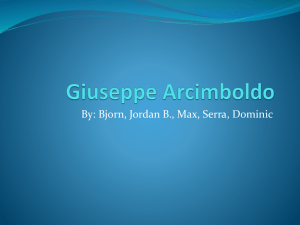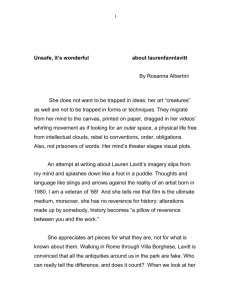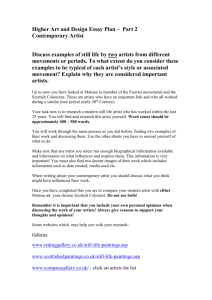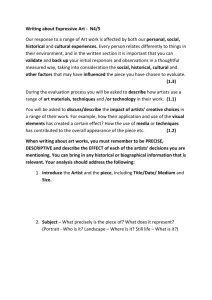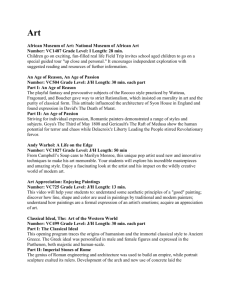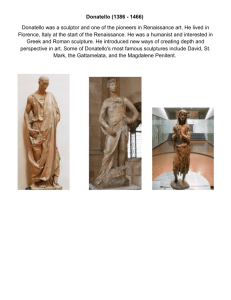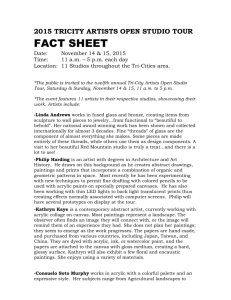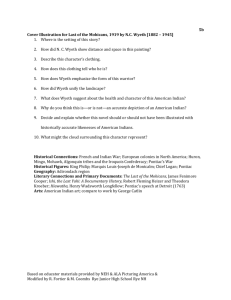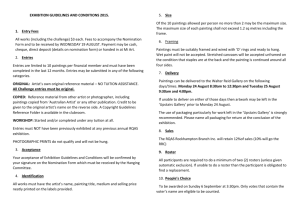Top Ten most influential American watercolor artists
advertisement
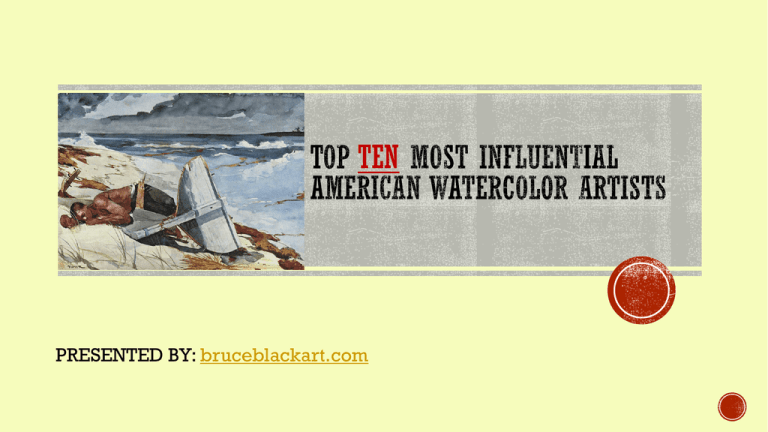
TEN PRESENTED BY: bruceblackart.com 10 Avery's work is crucial to American abstract painting. Avery defied conventional perspective in order to create representational, but highly abstract paintings. His work was initially rejected as being too abstract or out of the norm. Later, as abstract expressionism took hold in America, he work was considered too representational. Morning Workout 1955 ROSES BY THE SEA 9 From 1891 to 1894, Prendergast lived in Paris, where he studied painting and developed his understanding postimpressionism. Upon his return, he became associated with a group of artists known as The Eight, who championed a more progressive approach to art. He traveled to Europe many times between 1898 and 1914. The artist's assimilation of the avant-garde styles of Cézanne and Matisse is evident in his use of strokes of vivid colors in intricate, decorative patterns that draw attention to the picture's surface. Bathing, Marblehead 1897 8 Arthur Dove is known as one of America’s first true abstract artists. His paintings depict the American landscape through a reductionist’s approach of bringing the forms down to their essence. There is a quality of nature that stays within the work even as the forms and shapes take on more nonrepresentational aspects. In his first one-person exhibition, held at Stieglitz's Gallery 291 in 1912, Dove established himself as one of America’s most prolific and inventive artists working with abstraction. His work has inspired many future generations. Goat, ca. 1934 7 Demuth is known for his cubist style works depicting the Pennsylvania landscape and cityscapes. He studied at the Drexel Institute of Art and later at the Pennsylvania Institute of Art and Academy of Fine Art in Pennsylvania. Charles studied briefly with the French cubist Albert Gleizes in Bermuda in 1917. After returning to the United states, he developed his own precisionist style of painting. Trees & Barns: Bermuda 6 Eakins was a native born artist who is best known for his starkly realistic paintings. Most notable is the Gross Clinic (1875, Oil on canvas, 96” X 78”Jefferson Medical College, Philadelphia). John Biglin in a Single Scull, ca. 1873 5 Wyeth was the son of the famous illustrator, N.C Wyeth. He was a child prodigy who quickly developed a reputation for detailed realism. Wyeth focused his career on depicting the landscape and people around Chadd’s Ford Pennsylvania and his summer home in Cushing, Maine. Wyeth’s regionalist style captured the gritty ruggedness of both people and land. He was wildly popular during his lifetime and inspired many future artists. He is best known for his works in watercolor and egg tempera. 4 O’Keeffe brought her own personal instincts and style to the American art scene in the early 1900’s. Her paintings show an economy of detail with an emphasis on form, color, and shadow and exude of sense of Modernism. She worked both representationally and abstractly to reveal a unique vision of the southwest. Most noteworthy are her large floral paintings. Untitled, 1917 3 Marin travelled to Europe from 1905 to 1910 and returned to America after being influence by the works of Cezanne. He was introduced to Alfred Stieglitz soon after his return, and under the direction of The Stieglitz 291 gallery, he began to interpret New York through an abstract watercolor style, the likes of which had not been previously seen in America. Sunset, 1922 2 John Singer Sargent was born January 12, 1856 to American parents living in Florence, Italy. Although he spent most of his life in Europe, both of his parents were raised in the United States and the artist considered himself to be an American. Venetian Canal, 1913 1 Winslow Homer was a self- taught artist and illustrator who worked as a documentary artist during the Civil War. After a visit to France where Homer was exposed to the work of Barbizon School of painters, Homer adopted his mature style and sense of Realism. He later moved to Maine, where he painted several marine style landscapes. BRUCEBLACKART.COM VISIT: The Mango Seller
